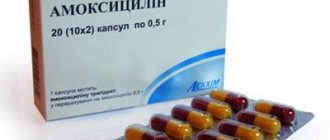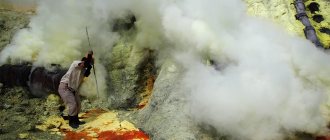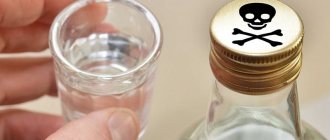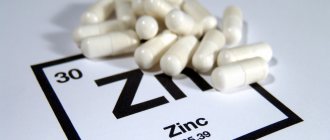A morning cup of coffee for a successful awakening is the norm. Almost every person treats himself to such an invigorating drink in order to wake up faster. But only coffee lovers know that sometimes it is impossible to stop not only after the first, but also after the third serving of this stimulating drink. Caffeine lovers often abuse this drink, not thinking that an overdose of coffee can occur at any moment. This drink brings not only pleasure, but also a strong burden on the body.
What is the norm of caffeine per day for a person, is there any benefit from it? How dangerous is its excess, what symptoms will occur in case of an overdose and what to do in this case? We'll talk about this below.
Symptoms of Caffeine Poisoning
Caffeine poisoning occurs after taking one or more grams of the substance. The lethal dose of caffeine for humans is more than 10 grams. For example, one cup of coffee contains from 100 to 120 milligrams. These symptoms appear when there is excess caffeine in the body:
- convulsions, fever, chills;
- heart rhythm disturbance;
- dizziness;
- nausea, nervousness;
- facial redness;
- decreased sensitivity;
- increased sweating;
- incontinence, diarrhea;
- insomnia.
With a severe overdose, hallucinations appear, the patient is poorly oriented in time and space.
Main symptoms of caffeine overdose
Treatment
Treatment in the hospital continues until the patient fully recovers. Timely assistance helps prevent the negative consequences of intoxication.
- Magnesium sulfate is injected into the stomach cavity using a special medical probe;
- To relieve pain spasms, diprazine and morphine hydrochloride are administered intravenously;
- Sedatives are used to block the excited state of the nervous system;
- Excessive concentration of the element requires plasma transfusion;
- Vitamin complexes are used to restore body functions.
How to remove caffeine from the body?
What to do and how to act in case of caffeine overdose? Under normal conditions, caffeine is eliminated from the body within 24 hours, but in case of an overdose, when the body is working in emergency mode, this process proceeds slowly. If measures are not taken in time, an excess of caffeine in the body can lead to unpleasant consequences.
You can neutralize the effects of caffeine using a few simple rules:
- The first thing you should do after discovering similar symptoms is gastric lavage. Usually the victim is given several glasses of water to drink, and then vomited. This allows you to remove caffeine that has not yet been absorbed from the body.
- If a long amount of time has passed since consuming caffeine, you need to take activated charcoal (at the rate of 1 tablet per 10 kilograms of weight).
- Drinking plenty of water will help remove caffeine.
- The patient needs to ensure free breathing, go outside or open a window.
It is worth remembering that this is only first aid, and even if the condition has stabilized and the symptoms have disappeared, you need to call an ambulance or see a doctor!
What happens when you overdose on caffeine?
Increased thirst
It may seem counterintuitive, but drinks containing caffeine can ultimately make you thirstier. In case of overdose, this symptom may manifest itself as dehydration. This is a potentially dangerous (and even fatal) condition.
The problem is that consuming caffeinated drinks doesn't adequately meet your body's fluid needs because they increase water loss (frequent urination is another symptom of excessive caffeine consumption).
Caffeine benefits and harms
The harm of caffeine, as well as the benefits, is the subject of much debate. Let's try to figure out how caffeine acts on our body. Despite the terrible consequences of poisoning, coffee has many beneficial properties such as:
- acceleration of mental activity of the brain;
- elimination of headaches;
- dilation of blood vessels;
- drinking coffee drink has a beneficial effect on patients with bronchial asthma;
- is an excellent antidepressant;
- stimulates memory;
- neutralizes drugs and poisons;
- promotes good digestion;
- reduces the risk of liver cirrhosis, diabetes, kidney problems;
The harm and benefits of coffee
It is worth remembering that caffeine only produces beneficial effects when consumed in moderation. Otherwise, serious health problems cannot be avoided. Frequent consumption of caffeine can cause the following consequences:
- Heart problems. So far, the effect of caffeine on the heart has not been fully studied by doctors and is the subject of much debate. But in medical practice, there have been cases where excessive caffeine consumption led to a disease such as coronary heart disease in completely healthy people.
- Lack of calcium absorption. Because of this property of caffeine, its consumption should be reduced by pregnant and lactating women, since during this period a woman needs a maximum of vitamins.
- Effect on potency. The harm of caffeine for men is one of the most common problems faced by coffee lovers of the stronger sex. Scientists have proven that due to excess caffeine in the body, there is a decrease in male sexual function.
- Dehydration. Coffee lovers should pay attention to the amount of liquid they drink and remember the need for additional water intake.
- Do not forget that this drink can cause addiction. It is often difficult to get rid of this addiction. The best time to drink coffee is in the morning, as this way the body gets a boost of energy for the whole day.
Caffeine can become a drug
Headache
The correlation between caffeine consumption and headaches is difficult to explain. However, excessive caffeine consumption can increase blood pressure, which leads to headaches.
Additionally, suddenly stopping or reducing caffeine intake can also cause headaches. Oddly enough, many headache medications contain caffeine.
“Crocodile balancing on a tightrope”: strange footprints discovered in South Korea
Seraph, Architect, Oracle: what other characters may not appear in “The Matrix 4”
Goal No. 1 – Kristen Stewart: why fans are unhappy with her image of Lady Di
How to choose the right coffee?
Also, considerable attention should be paid to the quality of coffee. An improperly prepared or adulterated drink can cause just as many health problems (if not more) than an overdose. When choosing, you should focus your attention on:
- Packaging integrity. If coffee comes into contact with the environment, it will not only soon lose all its qualities for which true connoisseurs love it so much, but will also cause harm to the body. Mostly, thick foil bags are used for coffee beans. It is also worth ensuring that the grains are protected from direct sunlight;
- Product description. The most important thing is to find information on the label such as: country of origin (each producing country has its own taste for one variety or another); degree of roasting (if the degree is low, the drink will have a sour taste, if high, it will be bitter), when choosing, you should pay special attention to types with a high degree of roasting, since this particular product is often counterfeit.
- Appearance. All grains must be the same in shape, size and color.
- The smell should be clearly perceptible, pronounced, but not harsh and cloying.
For ground coffee the criteria are similar. But this does not mean that less attention should be paid during selection. Quite the contrary, ground coffee is often counterfeited. At best, you will come across low-quality raw materials; at worst, it may turn out to be foreign products.
Tips for choosing coffee
Feeling of fear
Caffeine reaches the brain very quickly, acting as a central nervous system stimulant. The first feeling you get after overdosing is a heightened sense of alertness. It mainly manifests itself in the form of nervousness and anxiety. Of course, the severity of this symptom will largely depend on how many caffeine-containing drinks you have taken. But if you start to notice this condition, you should give up another cup of coffee for today.
What do you need to know when buying ground coffee?
- Package. In no case should it be made of plastic; the best choice is glass containers, or at least iron. This way, the coffee will better retain its properties and bring you only pleasure.
- Label. Must contain information: country of manufacture; composition (usually it is either one type or a mixture of two varieties); degree of grinding (this must be taken into account when preparing the drink and the final taste of the product depends on it); shelf life (usually for ground grains it should not be longer than 18 months).
- Appearance. All grains must be of uniform color and the same size. There should be no sticky lumps or foreign bodies.
- Smell. If you choose from ground, instant and bean coffee, the first one has the strongest smell, but this does not mean that it should fill the entire space of the room. Unobtrusiveness is the main characteristic of the aroma of coffee.
How to choose the right coffee?
Types of table salt
The modern food industry has begun to supply markets with brands and types of salt unknown to us. Its cost is sometimes significantly inflated. Is it justified, is such salt useful? And how much can you eat? A lethal dose of salt, no matter what its appearance, still exists, so you shouldn’t get too carried away.
According to the extraction method, there are several types of salt:
- evaporation: extracted from the subsoil, then water is evaporated from it;
- stone: mined in special quarries using appropriate equipment;
- self-precipitating: such salt precipitates on its own, all that remains is to collect it;
- cage: evaporates naturally at the bottom of salt lakes.
If we talk about types of salt based on artificial additives to it or special treatments, we distinguish:
- dietary - has a fairly specific taste;
- “Thursday”, “Papuan”, Himalayan, and many others.
What should your daily caffeine intake be?
So how much coffee can we drink per day? The daily dose of caffeine is approximately 400 mg, that is, a person can drink 3 to 4 cups of coffee per day without consequences for the body.
But you should not rely only on statistics, because each organism is individual, and if for one five cups of this drink is a common thing, then for another it is a critical dose. We hope this information will help you maintain your health and avoid caffeine poisoning.
Emergency life saving
If one of your family or friends is taking a dangerous drug, you need to monitor how much the person has taken.
It is especially important to control the dosage in older people who are prone to forgetfulness. It would be useful to learn the symptoms that indicate that you have taken a lot of the drug
In any case, you cannot do without calling an emergency team
It is important to remember the name of the medications and not throw away the containers of the medications so that doctors can begin detoxification as quickly as possible and minimize the strong negative effect of poisoning
First steps at home
While the ambulance is on its way, you should take a number of independent measures. In particular, if a person started using sleeping pills 30 minutes ago and is still conscious, you need to:
- give as much water as possible to drink;
- induce vomiting;
- give sorbents (activated carbon);
- pour sweet strong tea or milk.
If a person is unconscious, the algorithm of actions is:
- open your mouth and check for tablets - a large amount cannot be swallowed at once;
- if there are signs of breathing or heartbeat, place the patient on his side;
- vomiting began, you need to make sure that the respiratory organs are not clogged.
In case of cardiac arrest, indirect massage is necessary. You need to know this if there is a seriously ill person in the house, whose treatment is carried out with injections or sleeping pills.
Chances of survival
With timely help, the result of poisoning can be reversible
It is only important that the right doctor or person who knows what to do is nearby. With all other factors, there is also a chance to survive, however, severe damage to the brain and internal organs will result in a series of diseases, mental disorders and other troubles
Attention! The consequence of poisoning with sleeping pills is not always death, most often it is a wheelchair, immobility or degradation of mental abilities. This is something you need to think about before you eat a handful of pills at a time - not all medicinal products lead to instant death, more fatal consequences can also occur
Sports load
Athletes often abuse the drug to increase their own performance during training. This is not recommended. If you need to carry out such a procedure, you need to follow a number of rules that will help prevent unwanted consequences:
- Consume food containing the substance within 60 minutes. before training;
- You are allowed to drink only 2 glasses of solution;
- Energy products contain sugar, which negatively affects your well-being - it is recommended to exclude them from the diet;
- The element causes dehydration - it is recommended to replenish water deficiency by drinking plenty of water.
Following simple rules will prevent poisoning and deterioration in physical performance.
Risk factors
Combining caffeine with alcohol can have several harmful effects.
Alcohol is a depressant, but caffeine can mask some of the effects of alcohol, making a person feel more alert. People who combine energy drinks and alcohol may be more likely to drink excessively.
A fetus or newborn is unable to quickly break down caffeine. The American College of Obstetricians and Gynecologists advises pregnant women to limit their caffeine intake to less than 200 mg per day, the equivalent of 1 to 2 cups of coffee.
The Centers for Disease Control and Prevention (CDC) says that for women who are breastfeeding, low to moderate coffee consumption should not affect the baby.
CDC grade low to moderate - 300 mg per day, which is 2 to 3 cups of coffee. However, a person should consider reducing caffeine intake if the child seems irritable or fussy.
According to the FDA, the American Academy of Pediatrics does not recommend that children and adolescents consume caffeine. Energy drinks in particular can contain unhealthy amounts of sugar, as well as caffeine.
Caffeine may have more severe effects on a person who suffers from caffeine-related conditions.
Although there is no clear link between caffeine and heart health, people who are more sensitive to caffeine may experience palpitations and may want to reduce their caffeine intake.
Caffeine affects people differently depending on their overall health, age, weight, and height. A person who does not drink caffeine regularly may suffer more than a person who drinks coffee frequently.











